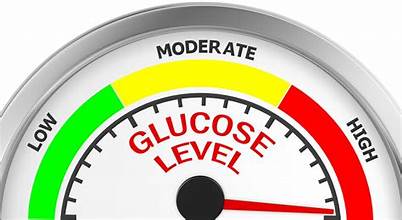A Comprehensive Guide to Blood Sugar Control Medicine
Managing blood sugar levels is crucial for individuals with diabetes. While diet and exercise play a significant role in controlling blood sugar, medication is often necessary to achieve optimal glycemic control. In this guide, we will explore the different types of blood sugar control medicine and their potential side effects.
Types of Blood Sugar Control Medicine
There are several types of medication used to control blood sugar levels. These include:
Insulin
There are several types of insulin, including rapid-acting, short-acting, intermediate-acting, and long-acting. The type of insulin prescribed will depend on the individual's needs and their healthcare provider's recommendations.
Oral Medications
Oral medications are taken by mouth and work by either increasing insulin production or improving the body's sensitivity to insulin. Some common types of oral medications for blood sugar control include:
- Biguanides:
- These medications decrease the amount of glucose produced by the liver and increase the body's sensitivity to insulin.
- Sulfonylureas:
- These medications stimulate the pancreas to produce more insulin.
- Thiazolidinediones:
- These medications help the body use insulin more effectively.
- DPP-4 inhibitors:
- These medications help lower blood sugar levels by preventing the breakdown of incretin hormones, which stimulate insulin production.
- SGLT2 inhibitors:
- These medications work by preventing the kidneys from reabsorbing glucose, causing it to be excreted in the urine.
Injectable Medications
Injectable medications are administered through injections and work by mimicking the effects of incretin hormones, which stimulate insulin production. Some common types of injectable medicine for blood sugar control include:
- GLP-1 receptor agonists: These medications help lower blood sugar levels by stimulating insulin production and slowing down the absorption of glucose in the intestines.
- Amylin analogs: These medications work by slowing down the rate at which food leaves the stomach, which helps control blood sugar levels after meals.
Potential Side Effects of Blood Sugar Control Medicine
While medication is essential for managing blood sugar levels, it is essential to be aware of potential side effects. Some common side effects of blood sugar control medicine include:
Hypoglycemia
To prevent hypoglycemia, it is essential to monitor blood sugar levels regularly and have a plan in place for treating low blood sugar. This may include consuming a fast-acting source of glucose, such as fruit juice or glucose tablets.
Weight Gain
Some blood sugar control medications, such as insulin and sulfonylureas, can cause weight gain. This is because they stimulate the body to produce more insulin, which can lead to increased fat storage. It is essential to monitor weight while taking these medications and make necessary adjustments to diet and exercise to maintain a healthy weight.
Gastrointestinal Issues
Some oral medications, such as metformin, can cause gastrointestinal issues such as nausea, diarrhea, and stomach pain. These side effects are usually temporary and can be managed by taking the medication with food or adjusting the dosage.
Allergic Reactions
In rare cases, individuals may experience allergic reactions to blood sugar control medication. Symptoms of an allergic reaction may include hives, difficulty breathing, and swelling of the face, lips, tongue, or throat. If you experience these symptoms, seek medical attention immediately.
Tips for Managing Blood Sugar Control Medicine
To ensure the effectiveness and safety of blood sugar control medicines, it is essential to follow these tips:
Take Medication as Prescribed
It is crucial to take medication as prescribed by your healthcare provider. Skipping doses or taking medication at the wrong time can lead to fluctuations in blood sugar levels and potentially dangerous side effects.
Monitor Blood Sugar Levels Regularly
Communicate with Your Healthcare Provider
If you experience any side effects or have concerns about your medication, it is essential to communicate with your healthcare provider. They can help adjust your medication or provide alternative options to manage your blood sugar levels effectively.
Maintain a Healthy Lifestyle
While medication is necessary for managing blood sugar levels, it is essential to maintain a healthy lifestyle through diet and exercise. This can help reduce the dosage of medicine needed and improve overall health.
Conclusion
Blood sugar control medicine is a crucial aspect of managing diabetes and achieving optimal glycemic control. By understanding the different types of medication and their potential side effects, individuals can work with their healthcare provider to find the best treatment plan for their needs.
It is essential to monitor blood sugar levels regularly, communicate with your healthcare provider, and maintain a healthy lifestyle to ensure the effectiveness and safety of blood sugar control medicine.



